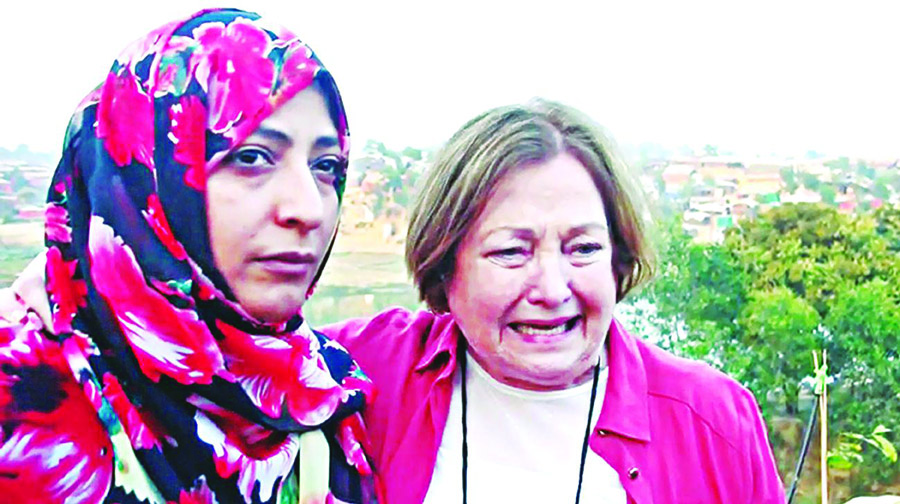
UNB, Cox’s Bazar :
They listened to the horrific tales from Rohingya women and hugged each other. Tears were rolling down from eyes of both the visiting Nobel Laureates and Rohingya women. A mood of grief and sorrow descended on the no man’s land along Bangladesh-Myanmar border on Tuesday.
Two of the three women Nobel Laureates, now on a Bangladesh tour – Tawakkol Karman and Mairead Maguire – visited the place where as many as 6,000 people are stranded. Thousands remain without food, water or sanitation; they have no access to help in a no man’s land between the two countries, threatened with repatriation. The Nobel Laureates became speechless after listening to the tales that described how they have gone through a tough time amid tortures by the Myanmar military and how they were raped.
They also inquired about their current situation and assured that they will share their sufferings with the international community. Rohingya leader at the no man’s land Dil Mohammad said the Nobel Laureates listened to horrific tales of four Rohingya women in details which made them emotional.
On Monday morning Shirin Ebadi, speaking after meeting officials at the Refugee Relief & Repatriation Commission in Cox’s Bazar, explained that her visit with fellow women Nobel Laureates, Tawakkol Karman and Mairead Maguire to the Rohingya refugee camps in the area is to gather information that could lead to an official International Criminal Court investigation. They are here to make a strong statement of support and solidarity with Rohingya women, bearing witness to their plight in what is now said to have become the world’s biggest refugee camp.
The Nobel Women’s Initiative in collaboration with its partner in Bangladesh, Naripokkho, is leading the delegation to Bangladesh to better understand the situation of the Rohingya refugees in Bangladesh. In particular, the delegation is focusing on the violence against Rohingya women-including high levels of sexual violence. Nobel Laureates Mairead Maguire (Northern Ireland), Shirin Ebadi (Iran) and Tawakkol Karman (Yemen) are also gaining a better understanding of the assistance and protection being provided by the Bangladeshi government and local communities, including the challenges they face, and the role of local and international organizations providing support to the Rohingya women in the camps and elsewhere.

